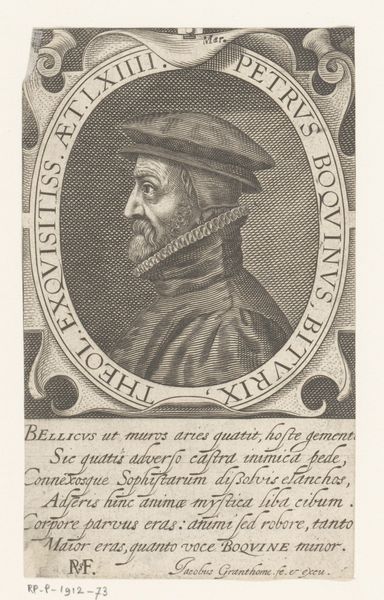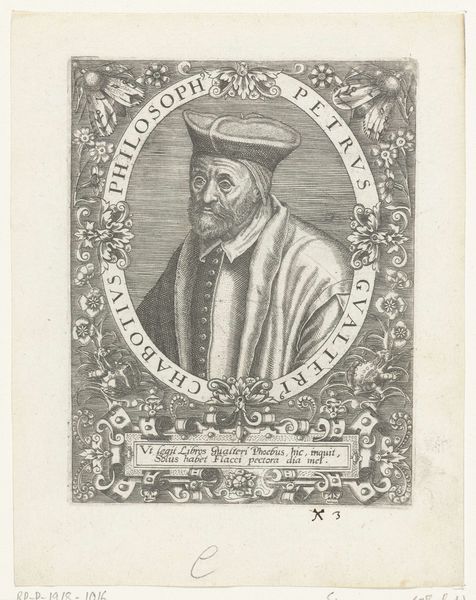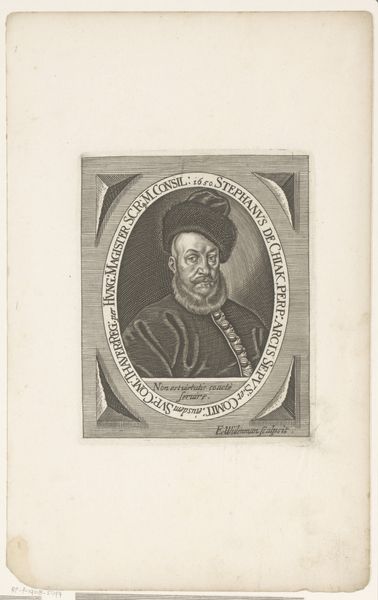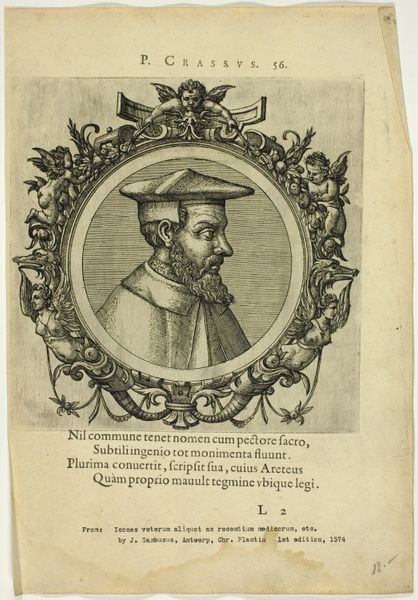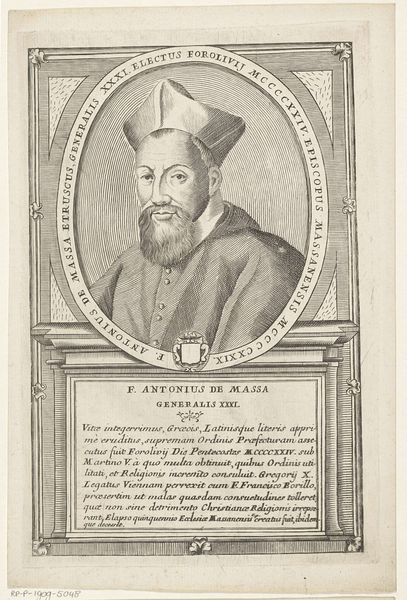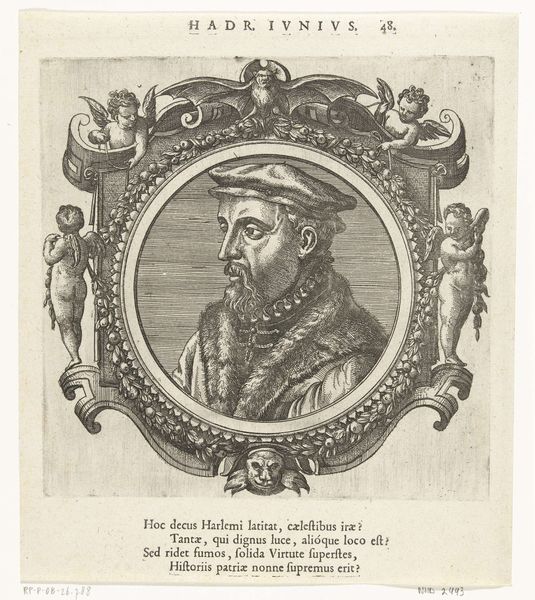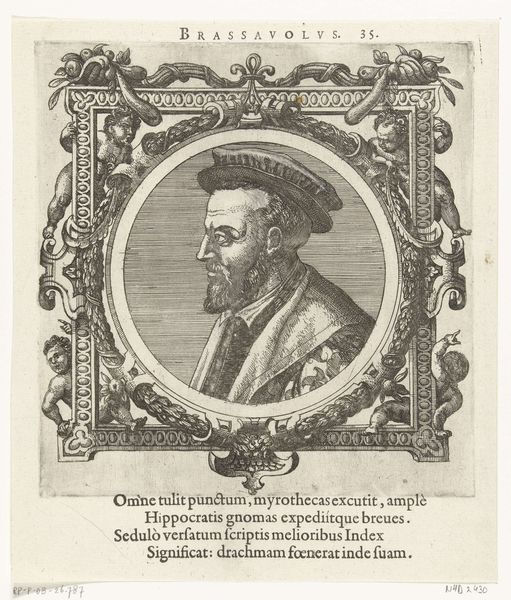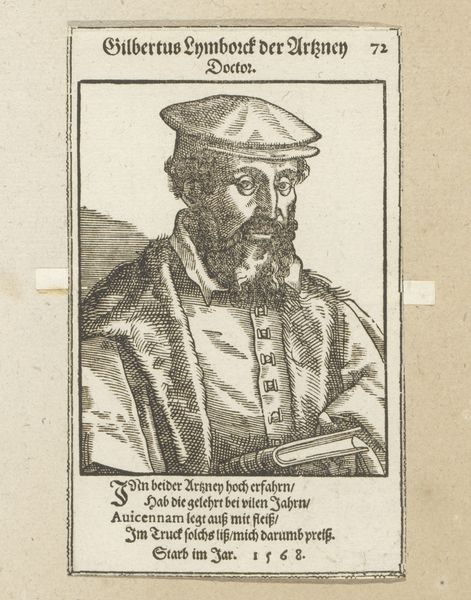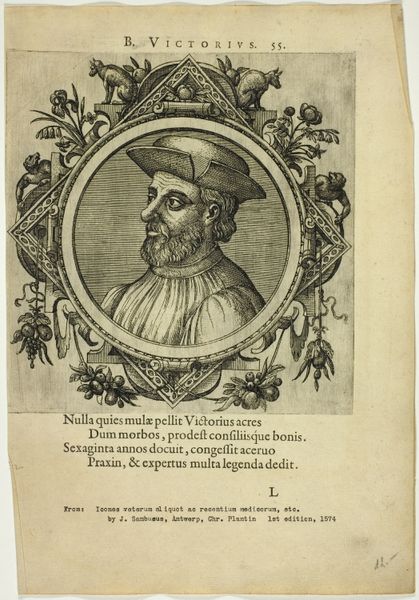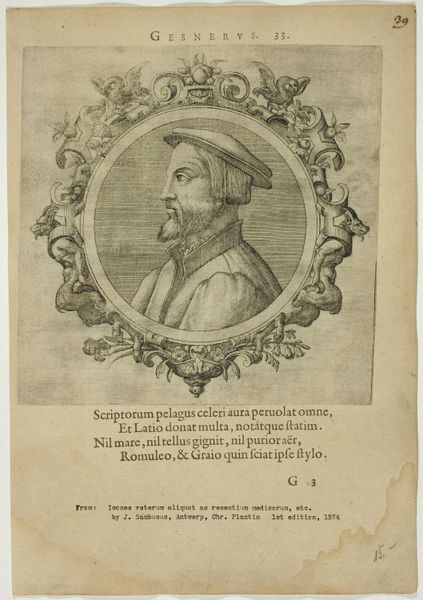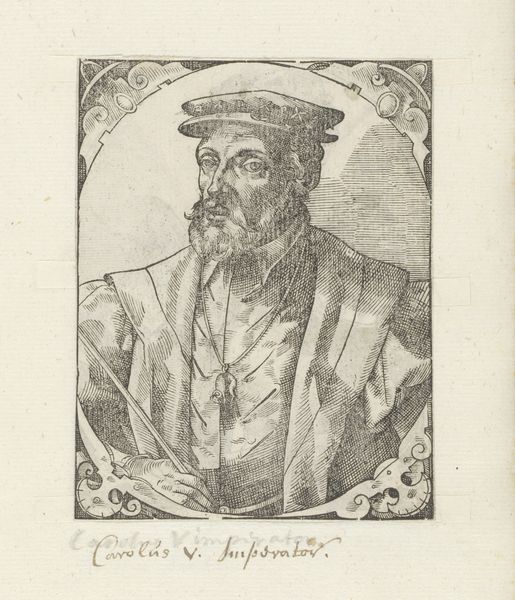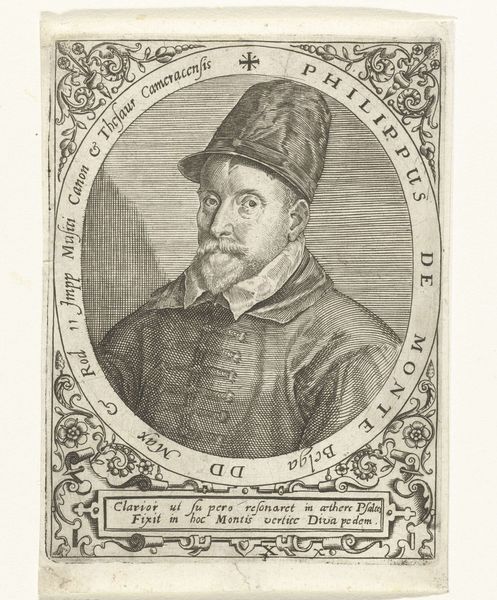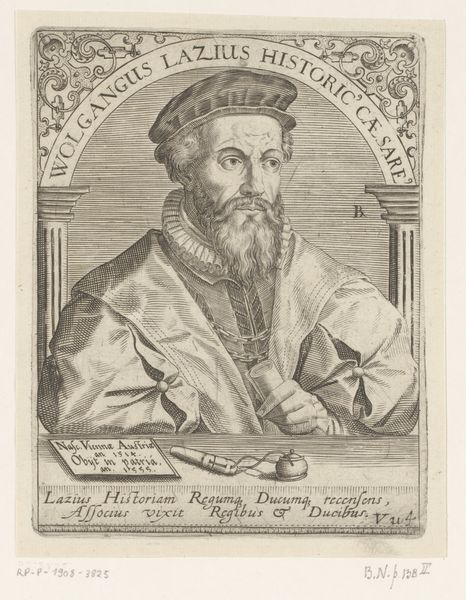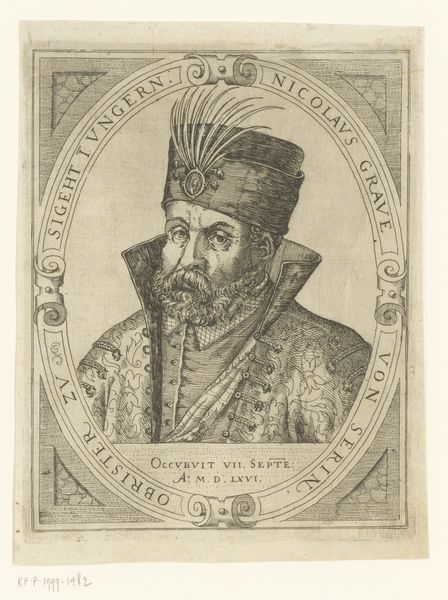
print, engraving
#
portrait
#
aged paper
#
light pencil work
# print
#
pencil sketch
#
old engraving style
#
11_renaissance
#
personal sketchbook
#
pen-ink sketch
#
pen work
#
sketchbook drawing
#
history-painting
#
storyboard and sketchbook work
#
northern-renaissance
#
sketchbook art
#
engraving
Dimensions: height 166 mm, width 123 mm
Copyright: Rijks Museum: Open Domain
Dominicus Custos made this engraving of Hieronymus Wolf sometime around 1600 using a technique that was revolutionary for its time. Engraving is an intaglio process, meaning the image is incised into a metal plate, in this case most likely copper. The artist would have used a tool called a burin to carve lines into the surface, with the depth and spacing of the lines determining the tones and textures of the final print. The fine lines capture Wolf's likeness, from the details of his beard to the folds in his garments. But beyond just technical skill, consider the social context. Engravings like these allowed for the mass production of images, enabling the dissemination of knowledge, ideas, and propaganda on a scale previously unimaginable. This print, therefore, isn't just a portrait; it's a product of a rapidly changing world, where new technologies were reshaping society. It prompts us to consider the labor involved in its making and the impact of printmaking on society, challenging our traditional notions of art and craft.
Comments
No comments
Be the first to comment and join the conversation on the ultimate creative platform.
